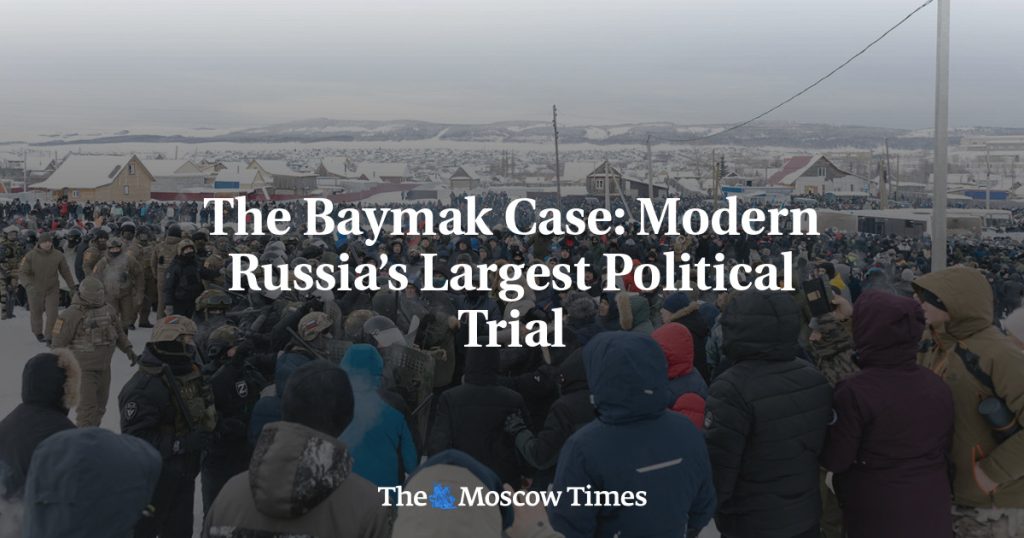In early 2024, protests erupted in the republic of Bashkortostan in Russia following the imprisonment of Fayil Alsynov, a prominent Indigenous Bashkir rights activist. Alsynov was sentenced to four years in a penal colony for his role in protests against illegal gold-mining works in the region. The case against Alsynov was initiated by the region’s Kremlin-appointed head, Radiy Khabirov, which many believed to be a personal vendetta due to Alsynov’s popularity among locals. The Russian rights group Memorial designated Alsynov a political prisoner in May, sparking nationwide attention to the situation in Bashkortostan.
Following the protests in Baymak, sweeping arrests of activists were conducted, resulting in the largest political trial in modern Russian history. Authorities in Bashkortostan exert tight control over the region’s security apparatus, enabling mass arrests with little to no repercussions. Arrested activists faced challenges in accessing legal help, given financial constraints and language barriers, as many primarily spoke the native Bashkir language. More than 70 individuals faced criminal prosecution in the “Baymak case,” facing serious charges that could lead to lengthy prison sentences.
Popular blogger and activist Ilyas Bayghusqar, a key figure in the protests, was arrested and remains in pre-trial detention on charges of participating in mass unrest. Despite the challenges he faced, including missing the birth of his daughter, Bayghusqar expressed a commitment to fighting for freedom for the sake of his children. The protests also resulted in life-threatening injuries to some participants and led to the deaths of two individuals, raising concerns about the treatment of detained protesters by law enforcement. Families of those prosecuted were hesitant to speak out, fearing further harm from increased publicity.
The defendants in the “Baymak case” were transferred outside of Bashkortostan to stand trial, a move by authorities to prevent further protests. Recent court rulings in neighboring republics have resulted in harsh sentences for some of the defendants, adding to the strain faced by those involved in the high-profile trial. Despite the challenges and secrecy surrounding the trial, the defendants and their families remain hopeful for a better future. Bashkir blogger Bayghusqar, in a message to his family, expressed faith that justice would prevail in the face of lies and accountability for those responsible for the situation.
The Moscow Times, a leading independent news outlet in Russia, is facing challenges due to government crackdowns on independent journalism. The publication is labeled as an “undesirable” organization, putting its staff at risk of prosecution. The Moscow Times continues to strive for accurate and unbiased reporting on Russia, despite these challenges. The publication appeals to readers for support to continue their work in defending open and independent journalism in the face of repression. This plea reflects the broader context of the struggles faced by independent media in Russia and the importance of supporting journalistic freedom.


